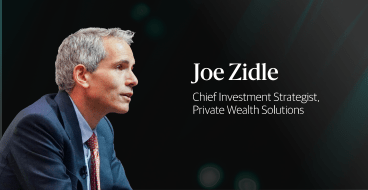Byron Wien: A Good Start to the Year, Though Risks Remain
While three quarters of strategists and economists are still forecasting a recession starting sometime later this year, the economy is still strong, and inflation is coming down. The Ten Surprises of 2023 allow for a mild recession but see it as one that leads to opportunities in the United States and abroad. We are in a period where overall returns in public markets are likely to be more modest than in the pre-pandemic decade as the return of inflation means that monetary policy is likely to be more restrained.
Our definition of a Surprise is an event which the average professional investor would assign a one-third chance of taking place, but which we believe has a 50% or better chance of happening. Our goal is not simply to be contrarian, or even to get a high score (although we are gratified when we do). Instead, we aim to stretch our own thinking and that of our readers.
In the First Surprise, we recognize that the press and others will be focusing attention on the presidential election in 2024. In the spirit of our Surprises, as outlined above, we decided to get creative and believe that each of the two leading candidates will decide not to run. There have been six US Presidents who have elected to not run for a second term for a variety of reasons. President Biden could elect to be the seventh due to a series of legislative and political accomplishments in his first term. He can proudly point to legislative wins such as the Inflation Reduction Act and Infrastructure Investment and Jobs Act. In addition, the result of the midterm elections, where Democrats did better than many expected, further boosted his standing. As he enters his ninth decade, he could step aside and be one of the only Presidents to not seek re-election based upon a productive first term.
In the case of Donald Trump, we suggest that he will decide that running for the White House could jeopardize his role as kingmaker in the Republican party. He has been determined to get back in the White House and deciding whether to run will be tough for him, particularly because he has an unshakable base of support whom he would not want to disappoint. But in the end, he may well decide to turn his attention to other legacy roles.
In the Second Surprise we think the Federal Reserve will maintain its restrictive monetary policy. Most equity market participants expect it to “pivot” sometime soon because inflation is coming down and the yield curve is already inverted, a historically significant recession signal. We believe the Fed is serious about its 2% objective for inflation. It may pause when the Personal Consumption Deflation Price Index gets to 4% (now about 5%) while it assesses other aspects of the economy, but its ultimate 2% inflation objective will remain intact. The Fed wants to create a positive real interest rate by ensuring the federal-funds rate is above the inflation rate. Should its policy rate reach 5%, as is generally expected, while inflation falls to 4%, Fed officials will achieve positive real rates. But even so, they will still consider 4% inflation too high and will remain restrictive as a result. Monetary policy works with a one-to-two-year lag. The shrinkage of the Fed balance sheet that started last fall is likely to begin to have an impact later this year. Once the effects start to be felt, then the Fed can consider reducing rates, but for now, it will put “pivot” on the shelf with “transitory.”
For the Third Surprise, we thought that in spite of the Federal Reserve tightening that has taken place so far, the United States economy remains strong. Jobs continue to increase at a pace exceeding 200,000 per month, and earnings reports by corporations remain positive. This continued momentum, however, is a contributor to the Fed’s decision to keep its monetary policy tighter for longer. As a result, we believe the Fed may overstay its tight money policy, even as inflation comes down from easier year-over-year comparisons and the lagged effects of slowing money supply growth. At a minimum, this means that a recession, if it occurs at all, should be pushed until later this year, whereas many have expected the downturn to begin in the first half. We do think that the significant tightness in the labor market, as well as solid nominal earnings growth, can allow any slowdown to be mild. Even so, slowing growth would likely cause profit margins to be squeezed by more than the consensus has been expecting.
In the Fourth Surprise, sometime later this year, when news on the market is likely to be bleakest, a buying opportunity will occur. In March 2020, in the midst of the COVID-19 pandemic, the correction created many interesting investment opportunities. As we learned in that market environment, we should not assume a quick return to the prior conditions. Every recession has an aftermath. We may see it in more remote work, a greater portion of income spent on services and experiences rather than goods, and more conservative corporate capital spending policies. A new cycle will begin, but as we have been saying for some time, returns are likely to be more modest than they were in the last decade. Monetary and fiscal policies are likely to be less accommodative and generous.
Market corrections tend to create financial accidents, and this is the Fifth Surprise. Some unanticipated event will occur that has an impact on the financial markets. One could say that the collapse of many cryptocurrencies—and associated companies—was the “accident” of this cycle. Another recent casualty seems to have been Modern Monetary Theory—the idea that countries with fiat currencies can run deficits on a permanent basis without necessarily causing unwelcome inflation—which seems to have been largely discredited. But our instinct is that there is something else out there. It could be related to the war in Ukraine or China’s economic or political policies. Be alert, because financial accidents can have a market impact.
The United States dollar is our Sixth Surprise. We have been dollar bulls for some time, and we are still more bullish than most. With a recession and energy problems in Europe and slow growth and geopolitical problems in China, America still seems like a good place for investments, given its solid legal system and strong military. The Federal Reserve is likely to maintain a firm monetary policy relative to other central banks, and returns from our fixed income securities should remain attractive. If we were right about this, the dollar should be strong. Equities in Europe and Japan have come down in price and their currencies have declined as well, so a dollar-based investor is in a good position to buy assets in these regions at attractive prices. There is a possibility of appreciation in both equities and fixed income as the world economy recovers and the dollar holds firm.
The Seventh Surprise considered China. The nation’s objective is to reach at least its earlier growth target of 5.5%, but this is unlikely. With continued Covid problems and some manufacturing plants having moved to Southeast Asia, India and back to the United States and Europe, China will likely not reach its former growth target soon. It also has an aging population and strained relations with many of its trading partners. Growth in the 3% to 4% range is perhaps as much as should be expected in the near term. Our Surprise is that the country does continue its economic recovery, however, and begins to edge closer towards its growth target. As its economy fully reopens, its growth rate will benefit from favorable year-over-year comparisons. In addition, we do anticipate some thawing of the difficult geopolitical relationship between the United States and China because the US is the country’s most important trading partner. China has gone through a difficult time and, like the United States, it is not likely to return to 2019 growth levels soon. We believe that restoration of growth and internal stability are Xi Jinping’s primary objectives.
A possible recession in the United States and slow growth elsewhere drives the price of West Texas Intermediate oil down to $50/barrel, and that is the Eighth Surprise. While Europe and the United States are working hard to reduce carbon emissions, China and India continue to use coal extensively for electricity production. The energy crisis in Europe resulting from the war in Ukraine has largely subsided, but relations between Saudi Arabia, Iran and the United States remain strained. The general consensus is that hydrocarbons will take many years to completely phase out. At the same time, we fully expect electric vehicles to gain market share, though this will take time, too. We expected a $100/barrel price of oil last year and were right for the wrong reason (it was because of the war in Ukraine, not because of growth). Somewhere out there we expect to see $100/barrel again, but perhaps not this year.
Most observers expect the war of attrition in Ukraine to continue indefinitely, but our view is that a meaningful ceasefire will happen this year, and that is the Ninth Surprise. The fighting has resulted in considerable casualties on both sides. Millions of people have lost their homes and whole cities have been destroyed. The war has caused real problems for Vladimir Putin at home and although he remains in firm control, there is more civil unrest than we have seen in some time. Both sides are reluctant to give up any territory. Ukraine wants to re-establish the 2014 borders and regain control of Crimea. Putin wants to keep all the territory he now occupies, and perhaps even gain more Russian-speaking territory. It would be humiliating for him to leave Ukraine with nothing after losing so many soldiers and spending so much. While the possibility of a successful peace agreement is low, the prospects for a ceasefire are high. Then we will see what happens. A ceasefire would certainly be bullish for the financial markets around the world.
Surprise Ten is already off to a rocky start. Every day we read of employees and advertisers leaving Twitter, but our belief is that Elon Musk will turn the company around before the end of the year. The Twitter investment has already cost him a fortune in that he arguably overpaid for the company, while Tesla stock has declined sharply. Twitter is reportedly not paying rent for some of its offices, delaying payment on some other expenses, and facing regulatory scrutiny. Some Twitter users have moved to other social media platforms. Getting the company back to where it was will likely prove a difficult lift, and growing it from there will be harder still. Elon Musk built an auto company at one point worth more than the next ten biggest auto companies combined. We will see if he can turn Twitter around and prove us correct in the end.
Every year we have a few Surprises that don’t make the Ten, either because we couldn’t bring ourselves to believe that they have a better than 50% chance of happening, or because they are not as mind-stretching as the Ten. We always have a somewhat whimsical Surprise, and the first “Also Ran” is that cryogenic preservation will come into practice. You can now freeze and preserve your body for about the cost of a Netflix subscription. If a cure for the disease you died from were developed, the theory goes, you can be unfrozen and begin life again. In the scenario we envision, funeral directors who perform cryogenic procedures advertise that “It’s Nice To Be On Ice.”
In the second Also Ran, we suggested that a technological development reducing the carbon emissions of coal-fired plants would be announced. This would vastly improve the prospects for reaching world targets for improving pollution levels and aid in reducing the dangers of global warming and climate change.
In the third Also Ran, we said India would become an increasingly important low-cost manufacturer. Strained relations with China are the background for this, but India has attractive qualities from a global investment perspective, including that it operates under a rule of law and is English-speaking. The country has a young population, inexpensive labor, a growing consumer market and policies that encourage investment. Some companies in the energy, technology and automobile sectors already have operations there and Apple and Samsung are producing their leading cell phones in the country. India is the only major economy where the working-age population is expected to grow meaningfully over the next decade.
So there are the Ten Surprises of 2023. Now let’s see how the year develops.
Taylor Becker provided critical assistance in the development of the Ten Surprises and the writing of this essay.
The views expressed in this commentary are the personal views of Byron Wien, Joe Zidle, and Taylor Becker and do not necessarily reflect the views of Blackstone Inc. (together with its affiliates, “Blackstone”). The views expressed reflect the current views of Byron Wien, Joe Zidle, and Taylor Becker as of the date hereof, and neither Byron Wien, Joe Zidle, Taylor Becker, or Blackstone undertake any responsibility to advise you of any changes in the views expressed herein.
Blackstone and others associated with it may have positions in and effect transactions in securities of companies mentioned or indirectly referenced in this commentary and may also perform or seek to perform services for those companies. Blackstone and others associated with it may also offer strategies to third parties for compensation within those asset classes mentioned or described in this commentary. Investment concepts mentioned in this commentary may be unsuitable for investors depending on their specific investment objectives and financial position.
Tax considerations, margin requirements, commissions and other transaction costs may significantly affect the economic consequences of any transaction concepts referenced in this commentary and should be reviewed carefully with one’s investment and tax advisors. All information in this commentary is believed to be reliable as of the date on which this commentary was issued, and has been obtained from public sources believed to be reliable. No representation or warranty, either express or implied, is provided in relation to the accuracy or completeness of the information contained herein.
This commentary does not constitute an offer to sell any securities or the solicitation of an offer to purchase any securities. This commentary discusses broad market, industry or sector trends, or other general economic, market or political conditions and has not been provided in a fiduciary capacity under ERISA and should not be construed as research, investment advice, or any investment recommendation. Past performance is not necessarily indicative of future performance.
For more information about how Blackstone collects, uses, stores and processes your personal information, please see our Privacy Policy here: www.blackstone.com/privacy.



